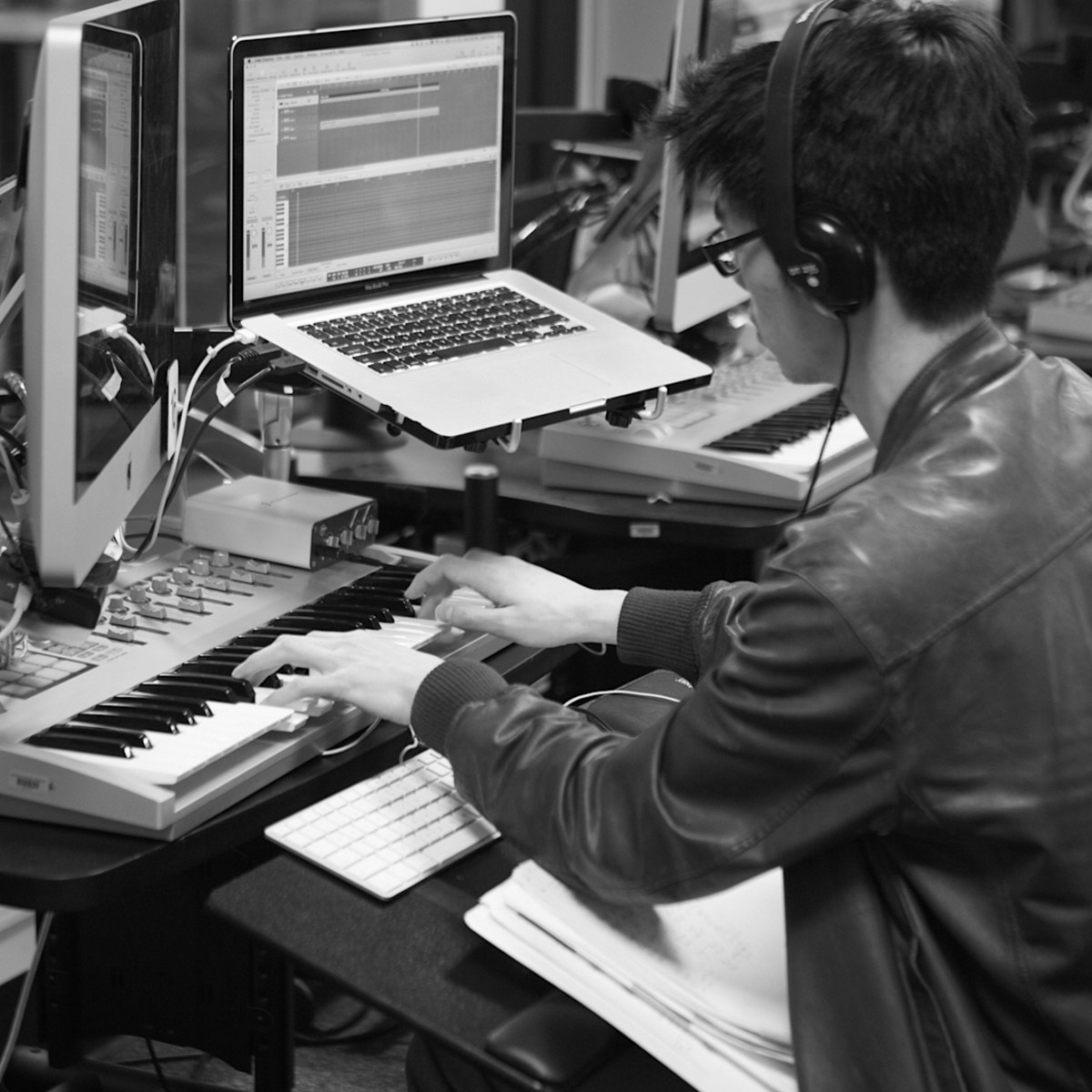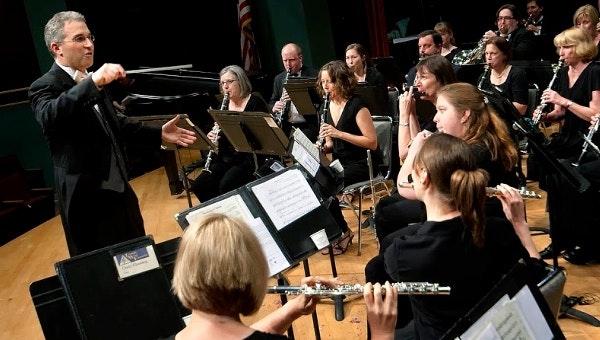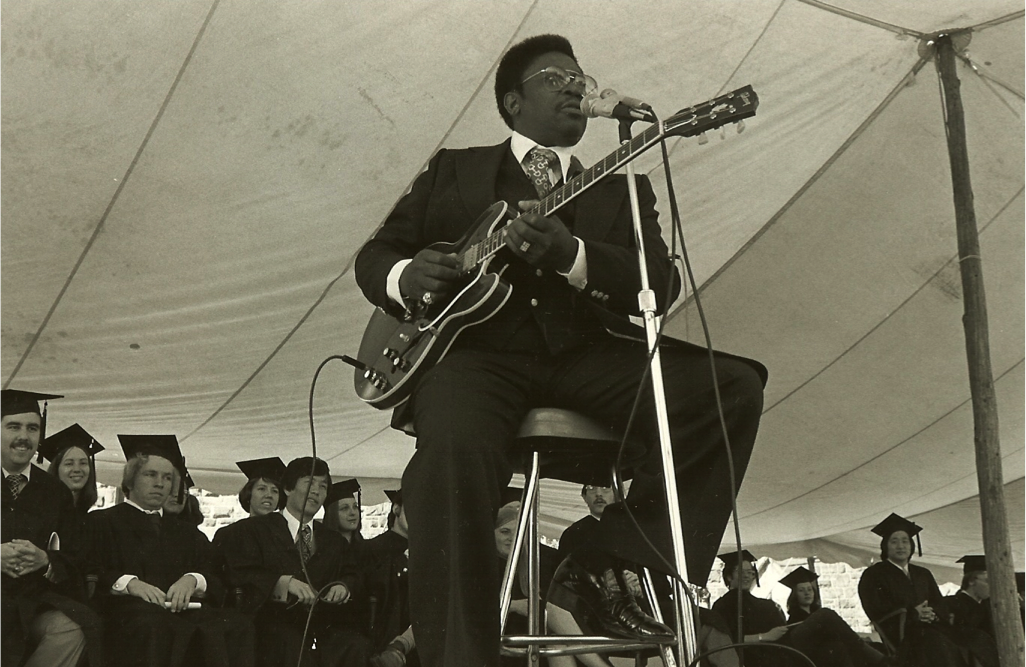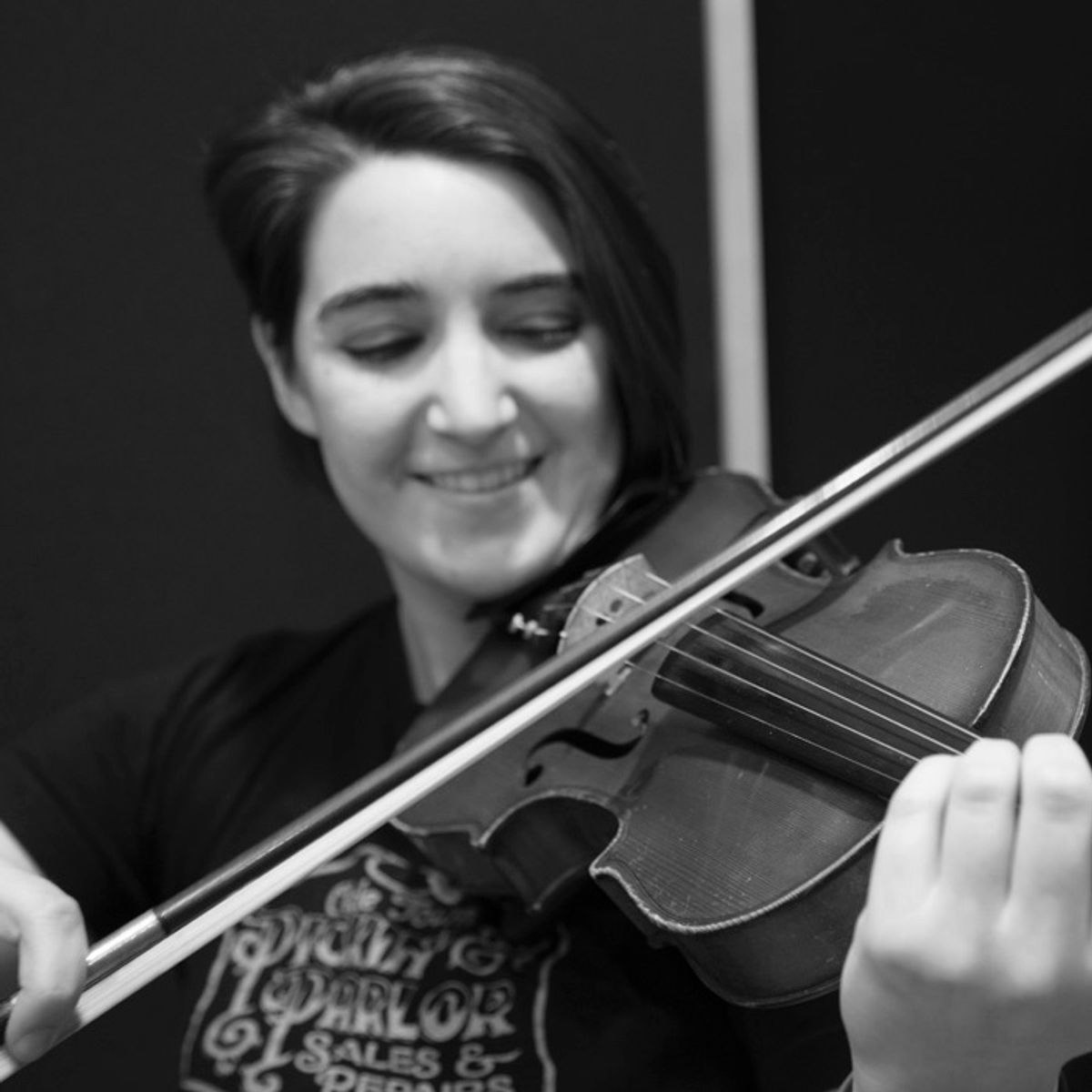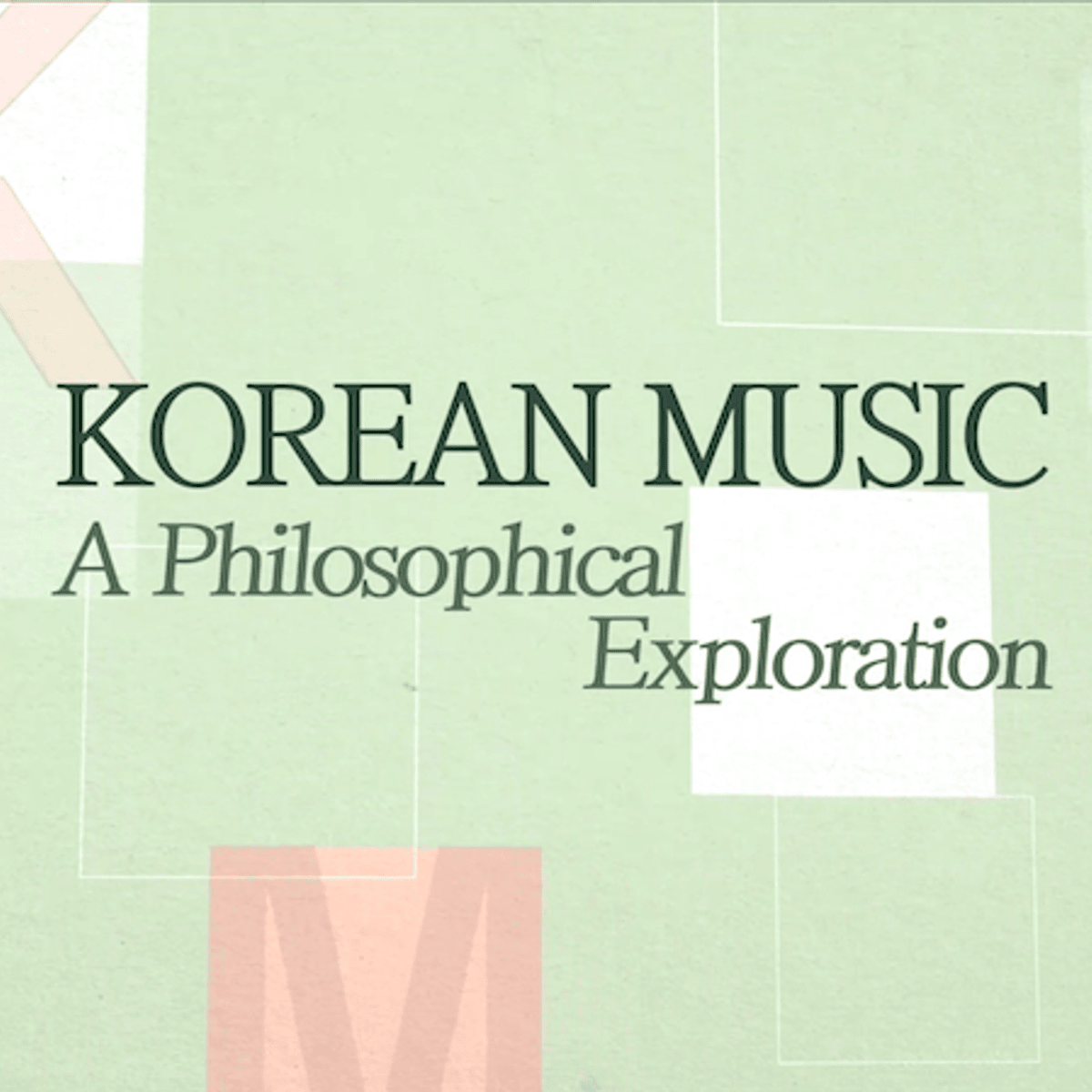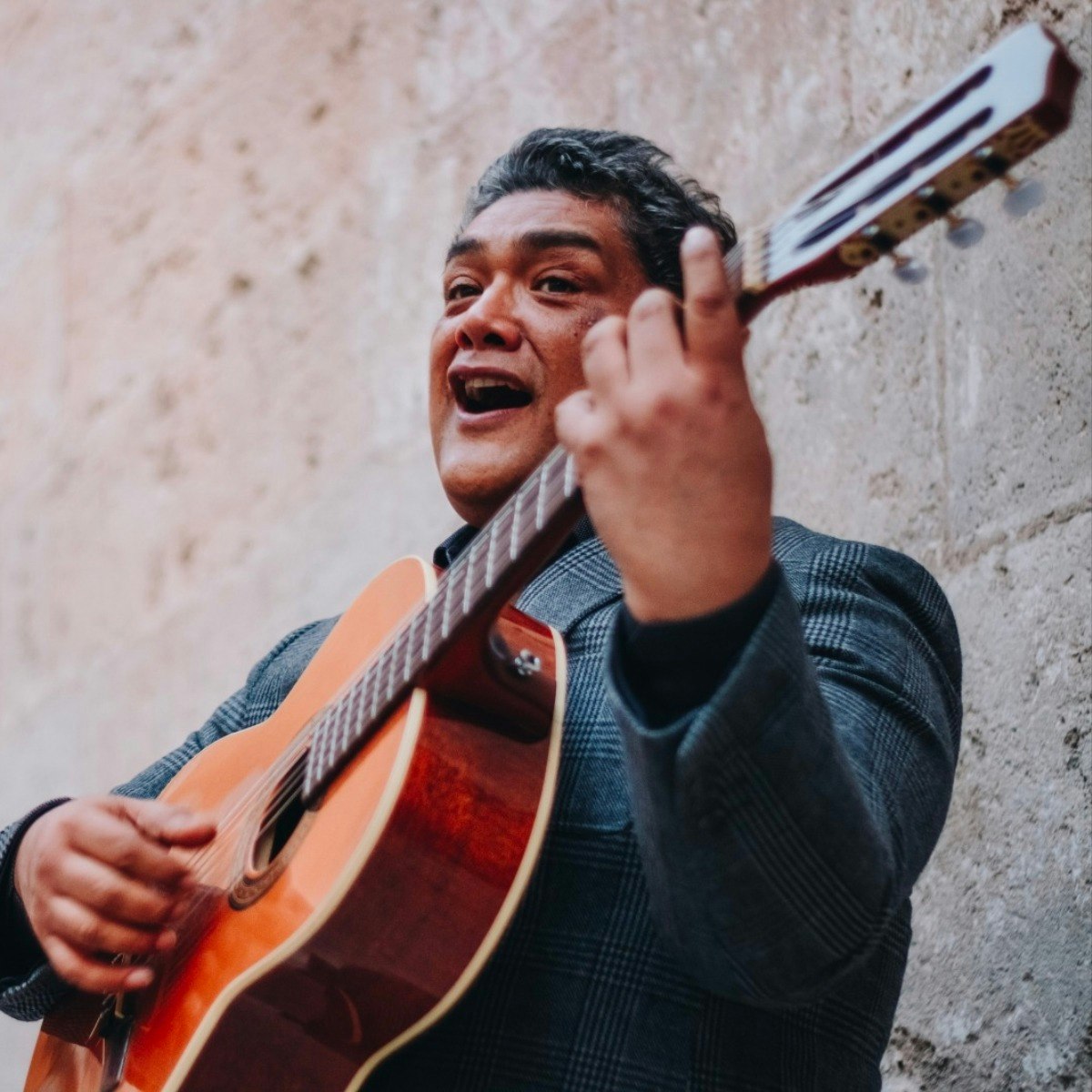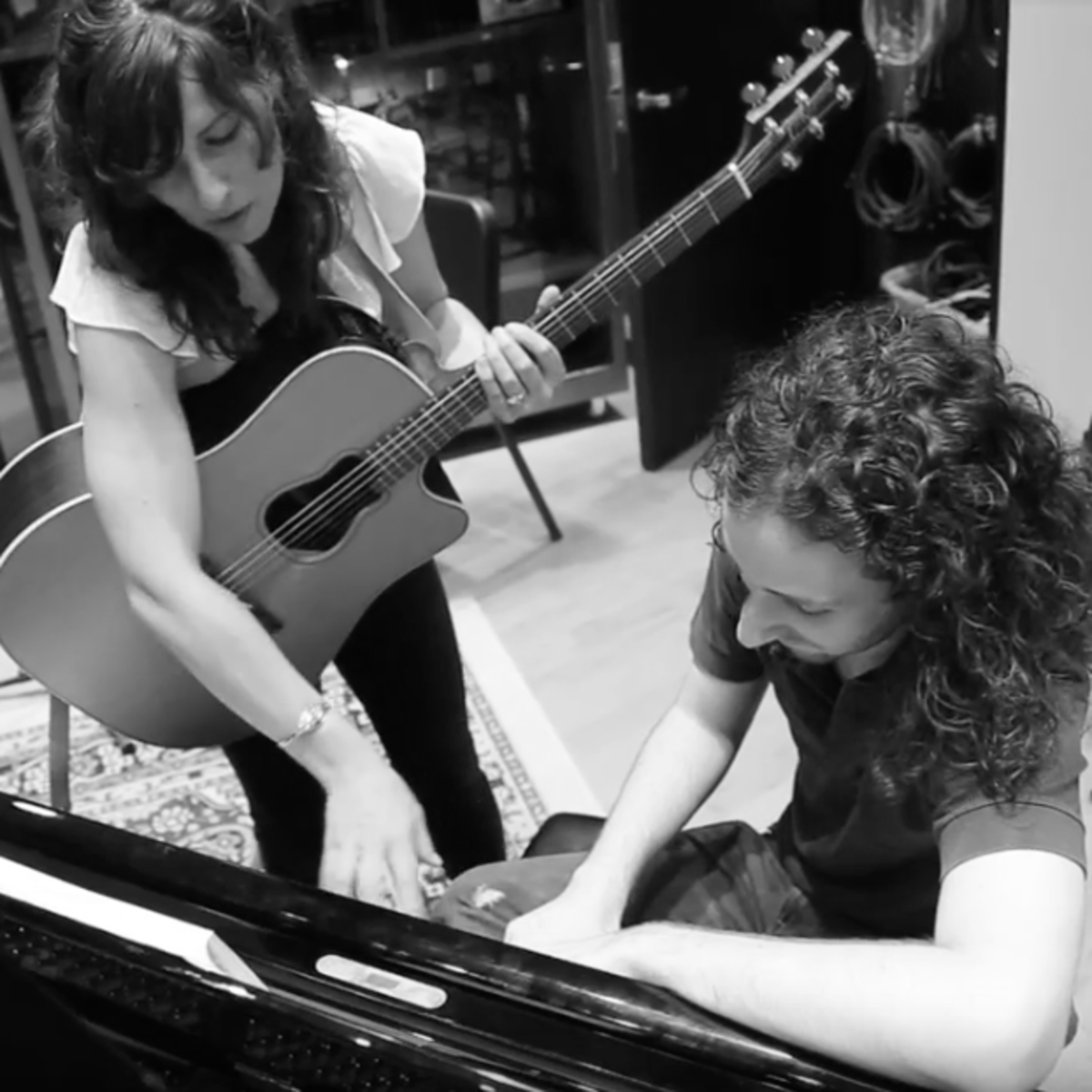Musician
A Career as a Musician: Harmonizing Passion and Profession
A musician is an artist who creates, performs, or interprets music. This broad definition encompasses a vast range of activities, from composing intricate orchestral scores to performing rock anthems on stage, playing jazz in intimate clubs, or producing electronic beats in a studio. Musicians work with sound, rhythm, melody, and harmony to evoke emotion, tell stories, and entertain audiences.
The allure of a music career often lies in the deep personal connection to the art form – the thrill of live performance, the satisfaction of creating something entirely new, or the joy of mastering a complex instrument. It's a path that promises creative expression and the potential to connect with others on a profound level. However, it's also a career demanding immense dedication, resilience, and often, entrepreneurial spirit.
What Does a Musician Do?
Defining the Role and Scope
Musicians engage in diverse activities depending on their specialty. Performers practice, rehearse, and perform music for live audiences or recordings. Composers write original music, arranging notes, harmonies, and rhythms. Music producers oversee the recording process, shaping the sound and guiding artists. Educators teach musical skills and theory to students.
The scope is incredibly varied. A musician might be a classically trained violinist in an orchestra, a singer-songwriter performing in cafes, a DJ mixing tracks in clubs, a session player contributing to various artists' recordings, or a composer scoring films. Many musicians wear multiple hats, combining performance with teaching, composing, or production to build a sustainable career.
This variety means work environments differ greatly. Musicians might work in concert halls, recording studios, clubs, schools, theaters, places of worship, or even from a home studio. The common thread is the dedication to the craft and the continuous effort to create and share music.
Essential Skills and Qualities
Creativity is fundamental, enabling musicians to interpret existing works uniquely or generate original ideas. Technical proficiency on an instrument or with voice is crucial, requiring disciplined practice to achieve mastery. A strong understanding of music theory, including harmony, rhythm, and structure, provides the framework for performance and composition.
Beyond musical skills, musicians need discipline, persistence, and resilience to navigate practice, auditions, and the industry's inherent instability. Collaboration skills are vital for ensemble players, band members, and studio work. Increasingly, business acumen, including marketing, networking, and financial management, is necessary, especially for independent artists.
These foundational skills are often developed through years of practice and study. Exploring different aspects of music helps build a well-rounded skill set.
For those starting or refining their theoretical knowledge, online courses offer accessible ways to learn core concepts.
Developing musicianship involves not just theory but also ear training and understanding musical structures.
Understanding notation is a key part of formal musical communication.
Daily Life and Work Environments
A musician's daily life rarely follows a typical 9-to-5 structure. It often involves hours of individual practice, rehearsals with ensembles or bands, songwriting or composition sessions, administrative tasks like booking gigs or managing social media, and teaching lessons. Performances often happen in the evenings or on weekends.
Work environments are diverse. Orchestral musicians might spend significant time in rehearsal rooms and concert halls. Touring artists travel frequently, performing in various venues from small clubs to large arenas. Session musicians work primarily in recording studios. Music educators work in schools, private studios, or community centers.
The freelance nature of much music work means schedules can be irregular, with periods of intense activity followed by downtime. This requires adaptability and strong time management skills. Many musicians balance multiple roles – performing, teaching, and composing – to create a varied and financially viable career path.
Formal Education Pathways for Musicians
Pre-University Musical Training
Early musical training often lays the groundwork for a professional career. This can begin with private lessons on an instrument or voice, participation in school bands, orchestras, or choirs, and attending specialized music camps or workshops. These experiences build fundamental skills, music literacy, and performance experience.
Dedicated young musicians might attend specialized music schools or participate in pre-college programs offered by conservatories or universities. These programs provide rigorous training, ensemble opportunities, and exposure to a high level of musicianship, preparing students for advanced study and auditions.
Consistency in practice and exposure to diverse musical styles during these formative years are crucial for developing both technical skill and musical understanding. Mentorship from experienced teachers can provide invaluable guidance.
Undergraduate and Graduate Degrees
Many aspiring musicians pursue formal degrees at universities or conservatories. Undergraduate programs, such as a Bachelor of Music (B.M.) or Bachelor of Arts (B.A.) with a music concentration, offer specialized tracks in performance, composition, music education, music theory, music history, or music business.
These programs combine intensive practical training (lessons, ensembles, recitals) with academic coursework in theory, history, ear training, and sometimes pedagogy or technology. A bachelor's degree can provide a strong foundation and network, though it's not always a strict requirement for performance careers, particularly in popular music genres.
Graduate degrees, like a Master of Music (M.M.) or Doctor of Musical Arts (D.M.A.), offer further specialization and are often pursued by those aiming for high-level performance careers (e.g., orchestral positions), university teaching, or advanced composition. These programs demand a high level of proficiency and commitment.
Building foundational knowledge in music theory is a key component of these degree programs.
Understanding concepts like scales and harmony is essential.
Research Opportunities in Music
For those inclined towards scholarly pursuits, PhD programs in fields like musicology (music history), music theory, or ethnomusicology offer paths into academic research and university teaching. These programs focus on critical analysis, historical research, and theoretical exploration rather than performance practice.
Musicology involves studying the history and cultural contexts of music. Music theory focuses on analyzing musical structures and systems. Ethnomusicology examines music within its social and cultural contexts across different societies worldwide. These fields contribute to our understanding of music as a human phenomenon.
Research in music can also intersect with technology (e.g., acoustics, music information retrieval) or other disciplines like psychology (music cognition) or sociology (music and society). These academic paths require strong analytical and writing skills alongside deep musical knowledge.
Courses exploring specific historical periods or musical forms can provide a taste of musicological study.
Online Learning and Independent Study
Developing Skills Through Online Courses
Online learning has opened up unprecedented access to music education. Platforms like OpenCourser aggregate courses from various providers, allowing learners to study music theory, learn instruments, master production software, or delve into music business concepts from anywhere, often at their own pace.
Online courses are highly suitable for building foundational skills, such as learning guitar, piano, or music theory basics. They can also offer specialized training in areas like jazz improvisation, electronic music production, or film scoring, supplementing formal education or enabling self-directed learning pathways.
The flexibility of online learning appeals to career pivoters, working professionals enhancing their skills, or hobbyists exploring their passion. Learners can choose courses that fit their schedule and budget, often accessing instruction from world-class institutions and industry professionals.
Here are courses for learning popular instruments online.
You can even learn less common but fun instruments like the washboard or cajon.
Pathways for Self-Directed Learning
Beyond formal courses, the internet offers vast resources for self-directed music learning. Digital Audio Workstations (DAWs) like Ableton Live, Logic Pro X, and FL Studio allow aspiring producers to create music entirely on their computers. Numerous tutorials, forums, and online communities support learning these complex tools.
Aspiring performers can find instructional videos, play-along tracks, and sheet music online. Songwriters can access resources on lyric writing, melody construction, and song structure. The key to successful self-directed learning is discipline, setting clear goals, finding reliable resources, and seeking feedback, perhaps through online communities or mentorship.
Combining structured online courses with exploration of free resources and practical application (e.g., joining a band, producing tracks, performing at open mics) can create a powerful, personalized learning journey.
Learning music production software is a common path for independent musicians.
Supplementing Formal Training with Online Resources
Even musicians pursuing formal education can benefit greatly from online resources. Online courses can supplement university coursework, offering deeper dives into specific topics (like jazz improvisation or electronic music) or providing alternative perspectives from different instructors.
Online masterclasses with renowned artists, virtual workshops, and access to vast digital music libraries can enrich a formal curriculum. Students can also use online platforms to build a portfolio, share their work, and connect with other musicians globally, expanding their network beyond their immediate institution.
For instance, a classical performance major might use online resources to learn music production basics, or a composition student might take an online course on film scoring. This blended approach allows musicians to tailor their education, fill knowledge gaps, and gain skills relevant to the modern music industry.
These courses offer specialized skills that can complement formal training.
Exploring specific genres or techniques can broaden a musician's horizons.
Career Progression and Opportunities
Entry-Level Roles
Entering the music profession often involves starting with roles that build experience and connections. This might include playing in local bands, performing at weddings or events, working as a session musician on recordings for other artists, or teaching private lessons.
For composers, entry points could be writing music for local theatre productions, student films, or community ensembles. Those interested in the technical side might start as assistant engineers in recording studios or work in live sound setup for venues.
These early roles are crucial for honing skills, understanding the practicalities of the industry, building a professional network, and developing a reputation. Resilience and a proactive approach to finding opportunities are key during this stage.
Learning about the music business early on is vital.
Mid-Career Paths
As musicians gain experience and recognition, opportunities often expand. Performers might progress to playing in more established bands or ensembles, securing residencies, touring regionally or nationally, or developing a career as a solo artist. Orchestral musicians typically advance through rigorous auditions to secure positions in professional symphonies.
Composers might gain commissions for larger works, score independent films or games, or develop relationships with publishers. Music producers could establish their own studios or work with higher-profile artists. Educators might move into positions at colleges or universities or build thriving private studios.
Networking, continuous skill development, and adapting to industry changes remain important. Specialization in a particular genre, instrument, or skill (like arranging or orchestration) can create unique career niches.
Developing a distinct brand and funding projects become important at this stage.
Senior Roles and Specialization
At senior levels, musicians often achieve significant recognition and influence. This could mean becoming a principal player in a major orchestra, a successful recording artist with a dedicated following, a sought-after composer for film, television, or games, or a tenured professor at a university.
Some musicians transition into leadership roles, such as becoming a conductor, music director for a theatre company or orchestra, or heading a university music department. Others leverage their expertise into related fields, perhaps founding their own record label, music publishing company, or tech startup.
Long-term success often involves a combination of exceptional talent, strategic career management, adaptability, and a degree of luck. Mentoring younger musicians and contributing back to the musical community are common activities for senior professionals.
These roles require advanced skills and often, leadership qualities.
Industry Trends Shaping Modern Musicians
The Impact of Streaming and Digital Distribution
The rise of streaming platforms like Spotify and Apple Music has fundamentally changed music consumption and revenue models. While offering unprecedented global reach, streaming pays artists fractions of a penny per stream, making it challenging for many, especially independent artists, to earn substantial income solely from recordings.
This shift necessitates diversifying income streams. Live performances, merchandise sales, synchronization licenses (music used in film, TV, ads, games), and direct fan support (e.g., crowdfunding, platforms like Patreon) have become increasingly vital revenue sources. Understanding digital distribution, music royalties, and online marketing is now essential for musicians.
The industry continues to grapple with fair compensation models in the streaming era. Some platforms like Bandcamp offer more direct artist support, and discussions around alternative payout structures, such as user-centric models, are ongoing. The global recorded music market has seen growth, driven largely by streaming subscriptions, but challenges remain in ensuring equitable distribution of that revenue.
Understanding digital distribution and royalties is crucial in the modern landscape.
The Rise of AI in Music Creation and Production
Artificial Intelligence (AI) is increasingly impacting the music industry. AI tools can assist in composition, generating melodies, harmonies, or even entire tracks. In production, AI can automate tasks like mixing and mastering, analyze tracks for improvements, or even separate stems from a finished mix.
AI also powers music discovery algorithms on streaming platforms, personalizing recommendations for listeners. This presents opportunities for artists to reach new audiences but also raises questions about algorithmic bias and the discoverability of niche genres. There are ongoing debates about AI's role: Is it a tool to enhance human creativity or a potential replacement for human artists?
Ethical and legal questions surrounding copyright for AI-generated music and the use of artists' work to train AI models are significant challenges. While AI offers powerful new capabilities, many believe it lacks the emotional depth and unique perspective of human artistry. As Forbes highlights, the future likely involves a fusion of human creativity and AI capabilities.
Understanding AI's potential and limitations is becoming increasingly relevant.
Globalization and New Markets
The digital age has made music more global than ever. Artists can reach audiences worldwide through streaming platforms and social media. This opens up opportunities in emerging music markets and allows for cross-cultural collaborations.
There's also a growing global appetite for diverse musical styles, including regional and non-English language music. This trend creates pathways for artists from various cultural backgrounds to find international audiences. However, navigating different cultural norms, languages, and market specificities presents challenges.
International touring, while potentially lucrative, involves logistical hurdles and costs, including visas and travel expenses. Understanding different cultural contexts and adapting marketing strategies are crucial for musicians seeking global reach. The industry is becoming less centered on traditional Western markets, reflecting a more diverse global music landscape.
Exploring music from different cultures can broaden artistic perspectives.
Health and Wellness for Musicians
Physical Demands and Injury Prevention
A music career can be physically demanding. Instrumentalists face risks of repetitive strain injuries (RSIs) like tendonitis or carpal tunnel syndrome due to long hours of practice and performance. Incorrect posture and technique can exacerbate these issues. String players, pianists, and drummers are particularly susceptible.
Wind and brass players may experience issues related to breathing and embouchure, and in rare cases, specific respiratory conditions. Singers must care for their vocal cords, avoiding strain and overuse. Prolonged standing during gigs can lead to back pain or circulatory issues. Awareness of proper technique, ergonomic setups, regular breaks, warm-ups, and cool-downs are vital for injury prevention.
Seeking guidance from specialized teachers or healthcare professionals (like physical therapists or Alexander Technique practitioners) can help address physical challenges and promote long-term playing health. Ignoring pain can lead to chronic conditions that may end careers.
Understanding posture and movement can help prevent injuries.
Hearing Health
Exposure to loud music poses a significant risk to musicians' hearing. Noise-induced hearing loss (NIHL), tinnitus (ringing in the ears), hyperacusis (sound sensitivity), and diplacusis (perceiving one sound as two) are common problems. Orchestral musicians, rock bands, and DJs are often exposed to sound levels exceeding safe limits (typically considered above 85 decibels for prolonged periods).
Preventive measures are crucial. Using high-fidelity earplugs designed for musicians can reduce volume levels without distorting sound quality. Taking breaks from loud environments, monitoring sound levels during rehearsals and performances, and regular hearing check-ups with an audiologist specializing in musicians' hearing are important steps.
The World Health Organization's Make Listening Safe initiative highlights the global concern over hearing loss due to unsafe listening practices. Protecting hearing is essential for a musician's ability to perceive pitch, dynamics, and timbre accurately, and thus crucial for their career longevity.
Learning about acoustics and sound can increase awareness of hearing risks.
Mental Health and Well-being
The pressures of a music career can take a toll on mental health. Performance anxiety (stage fright) is common, affecting musicians at all levels. The instability of freelance work, financial stress, rejection, criticism, and the demands of touring can contribute to anxiety, depression, and sleep problems.
Maintaining a healthy work-life balance, cultivating supportive relationships, practicing mindfulness or meditation, and engaging in regular exercise can help manage stress. Seeking professional help from therapists or counselors, particularly those experienced with performers, is crucial when mental health challenges arise.
Some organizations and resources are dedicated specifically to musicians' mental health, offering support networks and guidance. Prioritizing mental well-being is as important as physical health for sustaining a long and fulfilling music career.
Courses focusing on wellness can offer valuable strategies.
Global Opportunities for Musicians
Navigating International Music Markets
Globalization and digital platforms allow musicians to connect with audiences far beyond their local scenes. Understanding different music markets involves researching cultural preferences, popular genres, key industry players (labels, promoters, media), and distribution channels in specific regions.
Cultural adaptation might be necessary, whether it involves translating lyrics, adjusting musical styles, or understanding local business practices and etiquette. Building relationships with local musicians, promoters, or industry contacts can be invaluable for gaining entry into a new market.
Language barriers can be a significant hurdle, requiring either learning the local language or working with translators and interpreters. Success in international markets often requires patience, persistence, and a willingness to learn and adapt.
Exploring music from various cultures can provide insights.
Opportunities in Emerging Economies
While established markets like North America and Europe remain significant, rapid growth is occurring in music markets across Asia, Latin America, and Africa. These regions often have vibrant local music scenes, growing digital infrastructure, and large, youthful populations eager for new music.
Opportunities may exist for international artists to tour, collaborate with local musicians, or license their music in these emerging economies. Understanding the specific dynamics of each market, including regulatory environments and dominant local platforms, is key.
Record companies and distributors are increasingly focusing on these growth regions, investing in local talent and infrastructure. For musicians willing to explore beyond traditional centers, emerging markets can offer exciting possibilities.
Challenges of Cross-Cultural Collaboration
Collaborating with musicians from different cultural backgrounds can be artistically enriching, leading to innovative musical fusions. However, it also presents challenges. Differences in musical language, aesthetic values, rehearsal practices, and communication styles can arise.
Building trust and mutual respect is essential. Taking time to understand each other's musical traditions and perspectives, finding common ground, and establishing clear communication methods can help overcome potential difficulties.
Logistical challenges, such as time zone differences, travel arrangements, and varying access to technology, may also need to be managed. Despite the hurdles, successful cross-cultural collaborations can broaden artistic horizons and lead to unique musical creations.
Learning about diverse musical traditions fosters understanding.
Financial Realities of a Music Career
Income Variability and Sources
Financial instability is a significant challenge for many musicians. Income often fluctuates depending on gigs, project availability, royalties, and sales. Very few musicians earn a substantial living solely from performing; most rely on multiple income streams.
Common revenue sources include live performance fees, merchandise sales, teaching (private lessons, workshops), session work (playing on others' recordings), composing or arranging fees, and royalties. Royalties derive from various sources: performance royalties (public broadcasts, live venues via PROs like ASCAP, BMI, SESAC), mechanical royalties (reproduction of songs via physical sales, downloads, streams), and synchronization royalties (music used in visual media).
Streaming royalties, while a growing part of the industry, often yield very low per-stream rates, making high volume essential for meaningful income. According to some reports, artists may earn as little as $0.003 per stream on major platforms. This emphasizes the need for diversification.
Understanding how different royalties work is essential.
record:16gfr3
Revenue Streams: Traditional and Digital
Traditionally, musicians earned primarily from record sales and live performances. The digital shift has altered this balance. While physical sales have declined, streaming dominates recorded music consumption. Live performance remains a critical revenue generator, often supplemented by merchandise sales at shows.
Digital avenues offer new possibilities. Licensing music for use in films, TV shows, video games, commercials, or online content (sync licensing) can be lucrative. Direct fan funding through platforms like Patreon or crowdfunding campaigns (e.g., for album production) allows artists to engage directly with their audience for financial support.
Building multiple income streams requires an entrepreneurial mindset. Musicians often need to be proactive in seeking diverse opportunities, from performance and teaching to licensing and online content creation. As highlighted by Regions Bank insights, building a team including advisors and managers can help navigate these complexities.
Courses on the music business can equip artists with necessary skills.
Financial Planning for Unstable Income
Managing finances with a variable income requires careful planning. Creating a detailed budget to track income and expenses is fundamental. Identifying essential versus non-essential spending helps control costs, especially during lean periods.
Building an emergency fund, typically covering 3-6 months of essential living expenses, provides a crucial safety net for unexpected downtime or expenses. "Income smoothing" strategies, like setting aside a percentage of earnings from busy periods to cover leaner times, can help manage cash flow.
Understanding tax obligations, including self-employment tax and potential deductions for business expenses (instruments, travel, studio costs), is vital. Saving for retirement through options like IRAs or Solo 401(k)s is important, even when income is irregular. Seeking advice from financial planners or accountants familiar with the music industry can provide valuable guidance tailored to a musician's unique situation.
Financial literacy resources can empower musicians to manage their finances effectively.
Frequently Asked Questions
Is formal education necessary to succeed as a musician?
Formal education (like a music degree) is often beneficial but not strictly necessary for success, especially in popular music genres. It provides structured training, theoretical knowledge, networking opportunities, and credentials valuable for teaching or orchestral careers. However, many successful musicians are self-taught or learned through informal apprenticeships.
What matters most is a combination of talent, dedication, skill, persistence, and often, business savvy. Online courses and independent study offer alternative pathways to acquire skills and knowledge. Ultimately, success depends on the ability to create compelling music and connect with an audience, regardless of the educational path taken.
How competitive is the music industry?
The music industry is highly competitive across most genres and roles. Many talented individuals aspire to careers in music, but opportunities, particularly high-paying, stable positions, are limited. Success often requires exceptional skill, perseverance, networking abilities, and adaptability.
The U.S. Bureau of Labor Statistics projects employment growth for musicians and singers to be slower than the average for all occupations through 2033, though openings will arise from replacing those who leave the field. Competition is particularly intense for performance roles in major orchestras or as mainstream recording artists.
Can AI replace human musicians?
While AI can generate music, compose, assist in production, and even mimic specific artists, it is unlikely to completely replace human musicians in the near future. AI excels at pattern recognition and generating variations but currently lacks the genuine emotional depth, life experience, and nuanced creativity that define human artistry.
Many see AI as a powerful tool that can augment human creativity, automate tedious tasks, and open new sonic possibilities. However, concerns exist about job displacement in certain areas (like stock music creation) and the ethical implications of AI-generated music, particularly regarding copyright and artistic authenticity. The industry is still adapting to AI's growing capabilities.
What are alternative careers for music-trained professionals?
A music background develops valuable transferable skills applicable to various fields. Alternative careers include music therapy, arts administration (working for orchestras, venues, or arts councils), music journalism or criticism, sound engineering, music software development, instrument building or repair, music librarianship, and artist management.
Many skills honed through music study—discipline, attention to detail, creative problem-solving, collaboration, performance under pressure—are valued in diverse professions. Combining musical expertise with skills in business, technology, or healthcare can open up unique career paths.
How do musicians adapt to changing technology?
Adapting to technology is crucial for modern musicians. This involves embracing digital tools for creation (DAWs, software instruments), distribution (streaming platforms, online marketing), and engagement (social media, fan platforms). Musicians need to stay informed about new software, hardware, and online trends.
Lifelong learning, whether through online courses, workshops, or self-study, helps musicians acquire necessary tech skills, such as video editing for promotional content, website management, or using data analytics to understand their audience. Flexibility and a willingness to experiment with new technologies are key to navigating the evolving landscape.
What are the best networking strategies for musicians?
Networking is vital in the music industry. Effective strategies include attending concerts, festivals, conferences, and workshops to meet peers, collaborators, and industry professionals. Participating in jam sessions or open mics provides performance opportunities and chances to connect with other musicians.
Building genuine relationships based on mutual respect and support is more effective than purely transactional networking. Utilizing social media and online platforms professionally to showcase work and engage with the community is also important. Offering help and collaboration, being reliable, and maintaining a positive professional attitude are key components of successful networking.
Embarking on a career as a musician is a journey fueled by passion, requiring immense dedication, continuous learning, and resilience. While challenges related to finances and industry competition are real, the rewards of creative expression and connecting with audiences can be profound. Whether pursuing performance, composition, education, or production, understanding both the artistic and practical aspects of the profession is key to building a sustainable and fulfilling musical life. Exploring resources like those found on OpenCourser's music category can provide valuable knowledge and skills for every stage of this journey.






















